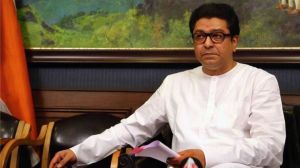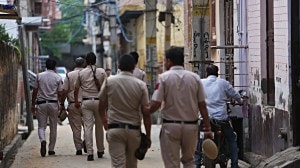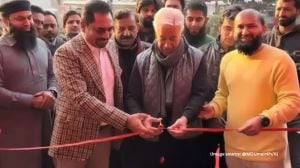Ignorance isn8217;t bliss
Military dictators tend to be simplistic in their approach. It is either bl-ack or white. There is no grey area for them. General Pervez M...

Military dictators tend to be simplistic in their approach. It is either bl-ack or white. There is no grey area for them. General Pervez Musharraf, Pakistan8217;s chief executive, is of the same mould. From the day he took over, he has been harping on one point: there will be no peace with India until the Kashmir issue is resolved.
This is the difference between a democratic government and a military junta. The former knows the price pe-ople have to pay when hostilities break out. Neither Zulfikar Ali Bhutto, Benazir Bhutto nor Nawaz Sharif, not even the two martial law administrators, General Ayub Khan and General Zia-ul-Haq, ever said: either Kashmir or no peace.
At one time, Zulfikar Ali Bhutto talked of a 1,000-year war with India. But he withdrew the threat. He came to realise that normalcy between Islamabad and New Delhi was a pre-requisite for reconciliation. In an interview at Rawalpindi two months before the Shimla conference, he told me that a step-by-step approach was necessary to reach a settlement on Kashmir. The Shimla agreement, like the Tashkent Declaration, listed several steps to normalise relations between the two countries.
The fault was not with the proposed steps but with Islamabad which simply did not implement them.
The Lahore process was yet another attempt to create a favourable climate to tackle Kashmir. If the behind-the-scene negotiations were any indication, the problem was nearing a solution. Musharraf should know that he is being blamed in India for sabotaging such a possibility. Anyone will tell him that the anti-Pakistan lobby in India had collapsed after Prime Minister Atal Behari Vajpayee took the bus ride to Pakistan and said in Lahore that the integrity of Pakistan was essential for the integrity of India.
It was the intrusion at Kargil which re-ignited the anti-Pakistan sentiment in India. How should the country take Musharraf8217;s words, 8220;I am for peace,8221; seriously when he is seen as the author of the Kargil tragedy? Why was the Lahore process sabotaged when it was moving towards a direction where all problems, including Kashmir, were sought to be settled in a give-and-take spirit? Maybe, Musharraf knows the answer.
I have just returned from Srinagar. The situation there is really depressing. It is not to the likening of anyone. The city has no electricity for most of the time. After dark, there is eerie silence and even trees look like men standing with stenguns. Both the security forces and the militants can take shots at each other if they are so inclined. People are exasperated and stay indoors out of fear.
During the day, the activity is limited and the youth most of them unemployed roam the streets. Political parties may make any claim but they are becoming increasingly irrelevant. There is an attitude of indifference to whatever is promised or, for that matter, what is happening.
But Musharraf is not helping the Kashmiris when he goes on sending the militants from Pakistan. After his takeover, the activity of the militants has increased. I am not defending the excesses committed nor the Lok Sa-bha election in the Valley. It was more of formality than of people exercising their vote. Let guns become silent fir-st. Peace is necessary for any effort to fructify. The solution will then begin to appear.
Islamabad can play a positive role if it stops cross-border militancy, to begin with, for one year. Local militants, who are generally dependent on Pakistan, can be influenced by it to declare a cease-fire for that much time. In turn, New Delhi should stop military and other operations. This will create the climate for talks.
However, the basis of any solution cannot be religion. Many people in Pakistan hawk about a proposition that the Mu-slim areas, primarily the Valley, should be integrated with Pakistan, and the Hindu and Buddhist areas of Jammu and La-dakh with India. Were this to be ever accepted, the wounds of Partition would be reopened. History might repeat itself. One shudders to imagine the consequences.
Even otherwise, India cannot endanger its secular polity. It is already facing a tough time at the hands of the Hindutva forces. It cannot accept a position where it is told that the Muslims in Kashmir want to separate on the basis of religion. Any referendum will be reduced to the Quran versus the Gita. The Red Shirts in the North West Frontier Province were decimated when the referendum was held to decide the fate of the state after the creation of the Islamic state of Pakistan because religion had become an arbiter.
How can secular India afford to go over the same exercise? This is the reason why it is so important to avoid a situation which may land India in the vortex of religion and its aftermath. And what kind of solution will it be if it is based on the lines of religion? The crust of enmity will become still harder. Kashmir is only a symptom, not the disease.
The two countries must learn to live like neighbours. So far they have either fought wars or behaved in a manner which has threatened peace. There has never been harmony, much less true understanding. It may have been said in a lighter vein but it is true that the foreign policy of India is formulated at Islamabad and Pakistan8217;s in New Delhi.
Since there has been no real contact between the two, not even an exchange of newspapers or books, both sides are dismally ignorant about ea-ch other. The young people of the two countries have no interaction and the old have not given up their prejudices. History which is taught in Pakistan does not recognise the Indian heritage. Nor do students know about the period before the advent of Islam in the subcontinent. That there is no cogent reply to the question asked on the missing link in history is one problem.
The other, more important one 8211; and this applies to India as well 8211; is that the people in both countries have grown up in the midst of doubt, suspicion and fear.
Tackling Kashmir first is putting the cart before the horse. The gro-und has to be prepared for any structure to come up. General Musharraf may begin with trade and commerce. He needs to improve his country8217;s economy. India can help a lot in this matter. We should also be willing to accept exports from Pakistan without any duty. People on both sides will develop a vested interest in the economic relationship and this, in turn, will generate genuine goodwill. Ka-shmir will be easy to tackle in that atmosphere.
- 01
- 02
- 03
- 04
- 05































